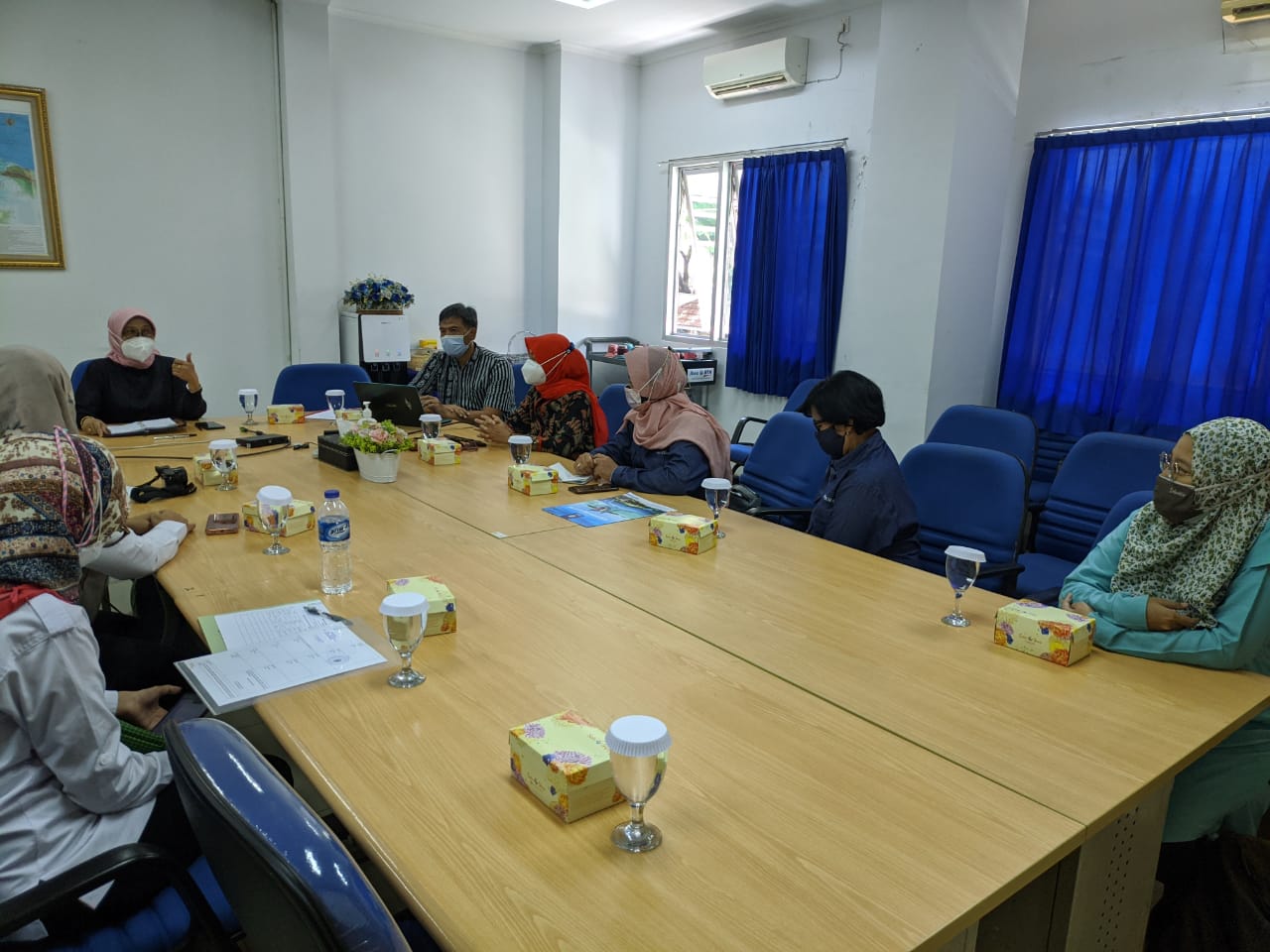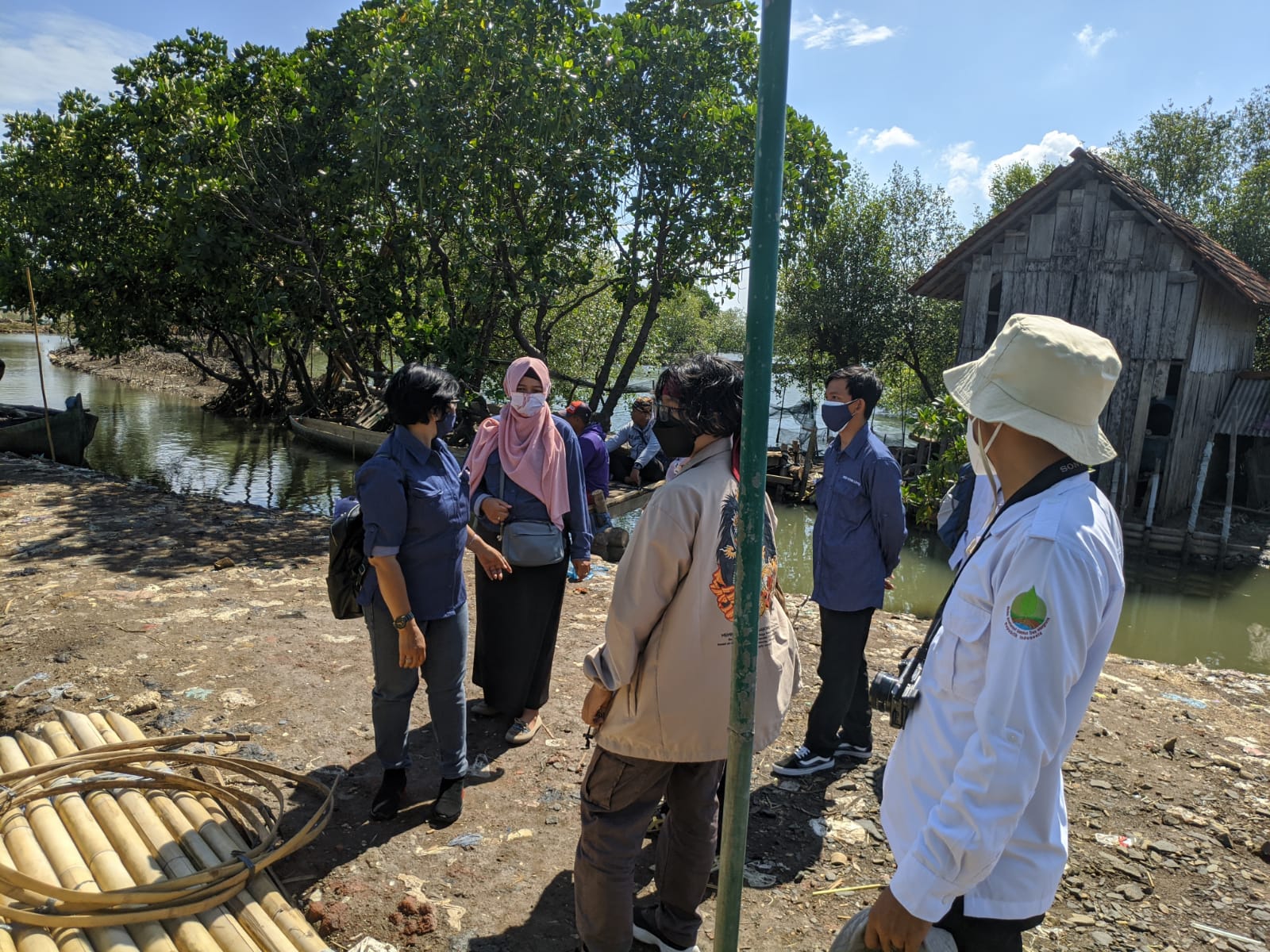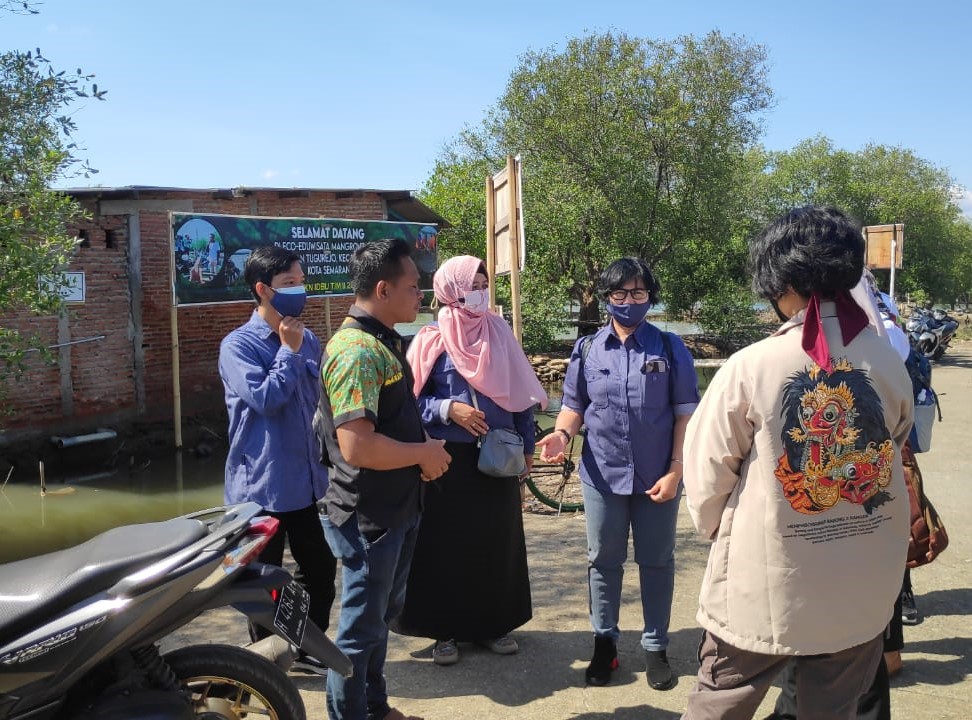AQUATIC, SEMARANG – Thursday, September 23, 2021 Undip Faculty of Fisheries and Marine Sciences received a visit from the Indonesian Peat and Mangrove Restoration Agency (BRGM), this visit was part of the BRGM safari tour in order to initiate cooperation to support the acceleration and realization of BRGM work programs. The Peat and Mangrove Restoration Agency of the Republic of Indonesia is a non-structural institution that is under and responsible to the President, BRGM was formed through Presidential Regulation No. 120 of 2020 concerning the Peat and Mangrove Restoration Agency. BRGM is tasked with facilitating the acceleration of the implementation of peat restoration and improving the welfare of the people in the peat restoration area as well as implementing the acceleration of mangrove rehabilitation in the target province. The visit was led by Dermawati Sihite, S.H, MH as Head of the BRGM Institutional Strengthening and Partnership Sub Working Group and met directly by Prof. Tri Winarni, M.Sc., Ph.D as the Dean of FPIK Undip.

Visit from the Peat and Mangrove Restoration Agency of the Republic of Indonesia (BRGM)
FPIK Undip became one of the educational institutions selected by BRGM as the target of the visit, after seeing the track record of FPIK Undip’s achievements in preserving and empowering coastal communities around the mangrove ecosystem through the tridharma activities of universities.

Visits to the locations of FPIK fostered villages, in Tapak and Mangunharjo Villages

The series of BRGM visits are: visits to the locations of FPIK fostered villages, in Tapak and Mangunharjo villages, as well as BRGM friendship events with Undip fostered partners, followed by a limited meeting with the Dean of FPIK and his staff to discuss the initiation of cooperation. On the same occasion, BRGM also expressed appreciation for the IDBU (Undip Assisted Village Science and Technology) activities carried out by lecturers of the Water Resources Management Study Program (MSP Study Program, FPIK-Undip) chaired by Prof.Dr. Sutrisno Anggoro, MS in Tapak Village and Dr.Ir. Suryanti, MPi in Mangunharjo Village. IDBU’s output is considered capable of optimizing the potential of mangroves for various benefits that can improve the economy of the surrounding community, such as a diversification program for various processed mangroves: mangrove soap, mangrove extract hand sanitizer, and various foods made from mangrove raw materials. BRGM was also impressed by the efforts of the IDBU team in empowering partners to activate the potential of mangrove eco-education. This is in line with BRGM’s vision to improve community welfare through the utilization and conservation of mangroves.-CA-


